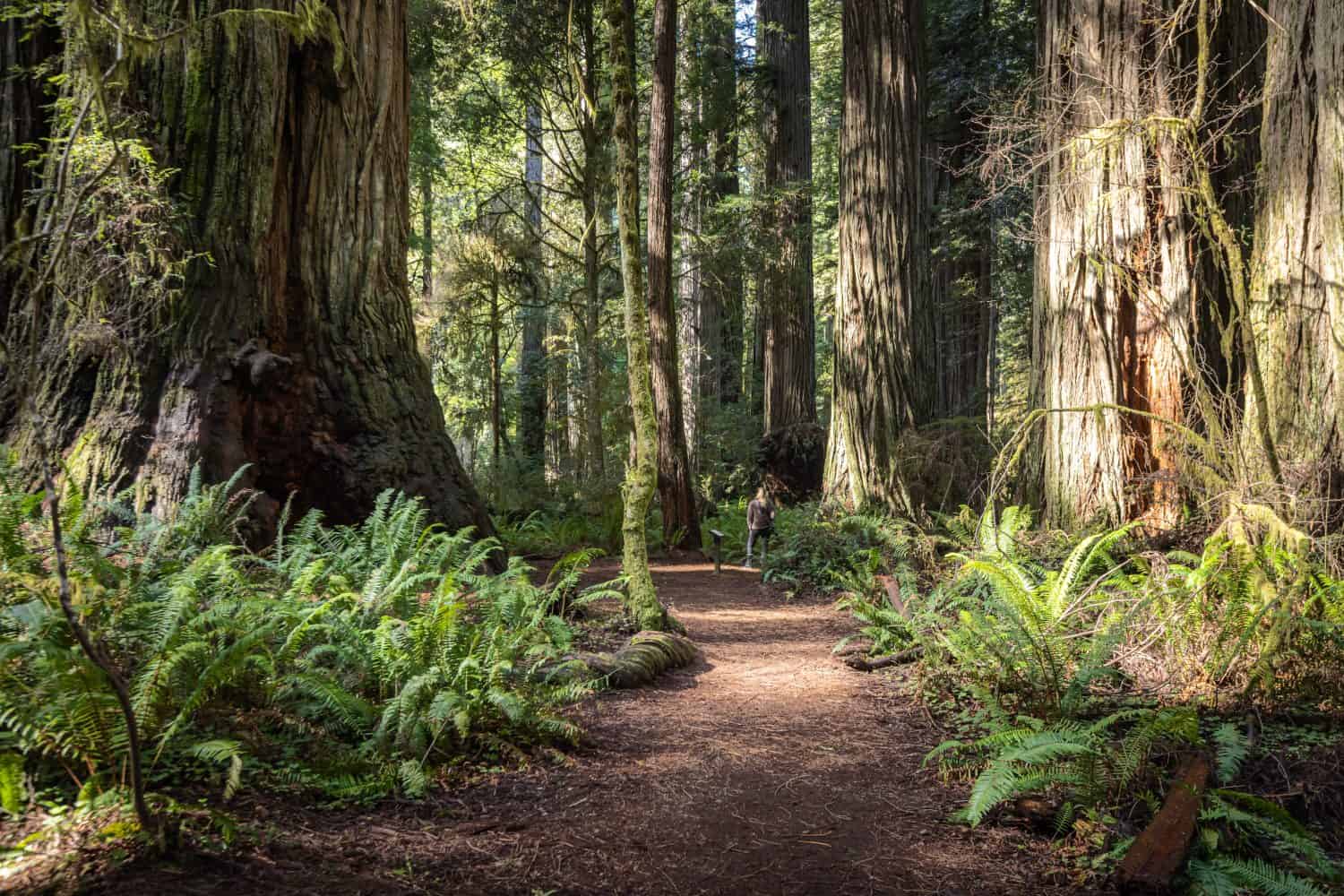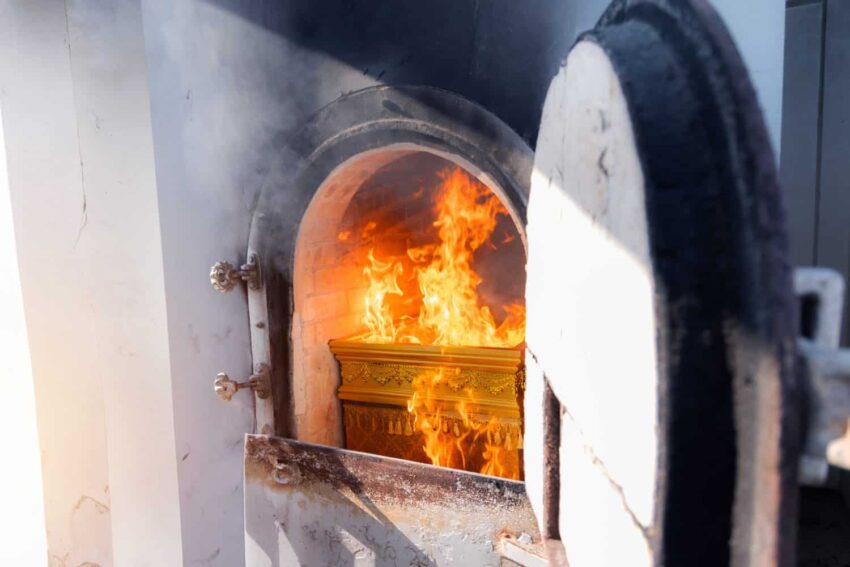Key Points
-
The Death Care industry is undergoing key changes as a result of increased technical savvy, greater eco-friendly demand options, and aging Baby Boomers now swelling the ranks of retirees and those approaching the end of their lifespans.
-
Venture Capital and Private Equity firms have analyzed the demand growth for these changes and already begun investing in startup companies that cater to these new markets.
-
The increased trend towards cremation has prompted some innovative approaches from entrepreneurs whose companies can offer services such as new storage configurations and other ways apart from scattering for ashes to be dispersed.
-
Are you ahead or behind on retirement? SmartAsset’s free tool can match you with a financial advisor in minutes to help you answer that today. Each advisor has been carefully vetted and must act in your best interests. Don’t waste another minute – get started by clicking here.(Sponsor)
The global funeral services care market is expanding worldwide. Several market research companies concur that some of the strongest regional CAGR rates are projected as follows from the present to 2031:
- North America: 5.2%
- Asia Pacific: 9.0%
- Middle East/Africa: 6.7%
- Latin America: 6.4%
The contributing factors for this anticipated growth include:
- The huge Baby Boomer demographic has now reached retirement age in its entirety.
- The pervasiveness of digital technology into everyday life via social media, DIY shopping, investing, et al. via online platforms have also penetrated the funeral services industry, bringing with them, the commensurate individual preference demands to which users have grown accustomed.
- Growing environmental concern awareness has changed attitudes about burials and spurred demand for alternatives for one’s remains post-funeral.
A New Perspective On Cremation
According to the National Funeral Directors Association, US cremations are increasing as the preferred method of handling the remains of loved ones, whether for interment, safekeeping, or for the ashes to be scattered. At the current rate, cremations stand at 61%, and are anticipated to reach over 82% by 2045. There are several underlying causes for this trend:
- Reduced Costs: On average, cremations are about $2,000 less than burials, so families under financial duress are more prone to opt for cremations.
- Cultural Changes: Declines in religious observance and increased dispersion of family members to distant cities have given traditions less emphasis in modern society. Greater individualism has fostered a push towards customized memorial services and tributes, incorporating music, videos, live streaming, and other non-traditional funeral arrangements.
- Space limitations: Burial plots are seeing rapidly escalating scarcity. Plots that once cost under $1,000 now start at $20,000. Space is at such a premium that some cemeteries are building mausoleums and giving incentives to current plot holders to exhume their families’ remains for relocation or cremation. In a number of cities, such as Hong Kong, there is a mandatory 6-year exhumation requirement for burials, so that the plots can be reused for other families’ funeral ceremonies.
While cremation is viewed as a more land-efficient alternative to burials, those with environmental concerns express consternation over the carbon footprint created by the fuel required for the high temperature furnaces to perform them. Alternative approaches to cremation and its aftermath have led some intrepid entrepreneurs to form several new companies listed below dedicated to that purpose. The private equity and venture capital sectors apparently approve. Sizable investment has already gone into early funding rounds, with more to follow.
Better Place Forests

Taking green internment to the next phase, Better Place Forests has cultivated a growing eco trend into the funeral services realm. With a network of 10 private forests located in California, the Southwest, Midwest, and Northeast, Better Place Forests offers clients a range of forest themed memorial services that can culminate in having ashes scattered at the base of the tree of their choice.
Better Place Forests was founded by Sandy Gibson. His mother, Anne, was the founder of Wellspring, a cancer survivor’s support group with a national network of over 75,000 families. Before she herself succumbed to cancer, a dearth of available burial plots left Anne and Sandy’s father, who was stricken with Hodgkin’s lymphoma, to be buried in the last available plot at a church adjacent to a busy highway. Several years later, Sandy conceived of Better Place Forests when he realized that being buried next to a highway in a strange church cemetery is not what his parents would have preferred for their final resting place.
Private equity investors apparently seem to share Sandy Gibson’s vision. He and his partners have expanded from their San Francisco base across the continental US, thanks to $79.8 million raised to date. The company has been written about in Forbes, Fast Company, The New York Times, and Sierra, and has been televised on CNBC and Today.
Earth

Composting has become a legal requirement in a number of cities. Soil regeneration and improvement has become an ecologically responsible practice to ensure the availability of fertile land for growing flora of all types. Earth combines soil science, software, and decades of licensed funeral services experience to avail clients of a carbon-neutral alternative to cremation. Earth’s “human composting” is a 45-day process that transforms a human body into a cubic yard of nutrient rich soil. This can then be claimed in whole or in part by the deceased’s family, with the remainder donated to conservation projects.
With locations in San Francisco, Las Vegas, Portland, and Auburn, Earth has cultivated a niche demographic of conservation-minded followers and their families. The Earth ethos is spreading, thanks to $10 million raised so far from private equity investors. The company has appeared on CBS-TV news and written about in Newsweek, The Seattle Times, and The Los Angeles Times.
Return Home

In a similar vein, Auburn, WA headquartered Return Home has its own version of human composting, which is described as “terramation”. A full-service green funeral home, Return Home’s terramation process uses alfalfa, straw, sawdust and roughly 60 days to process into soil, followed by an additional 30 days afterwards to cool and filter out inorganics.
Articles about Return Home have been published in Newsweek, Forbes, The Los Angeles Times, and others. The company has been the recipient of $2 million in venture capital funding to date.
Parting Stone

Based in Santa Fe, New Mexico, Parting Stone offers clients an alternative to traditional urns or other containers for cremated ashes. Parting Stone provides clients with a collection kit for cremated ashes, which it will then process into roughly 40 to 80 compressed, solid stones. In this more convenient form, flexibility of storage configurations are expanded, and stones can easily be distributed to other family members for safekeeping and memoriam. Parting Stone also offers their services for pet cremations.
With an excess of $4 million raised to date from private equity and venture capital funding, Parting Stone has been featured in Bloomberg BusinessWeek, Fast Company, People, and has the distinction of appearing on ABC-TV’s Shark Tank, where it received $400,000 from Lori Greiner and Kevin O’Leary for a 10% equity stake and a royalty.
After.com

By utilizing its online platform menu of services, After.com clients can realize substantial savings on a range of traditional cremation services. With many household budgets stretched beyond limit due to the one-two punch combination of the pandemic and Bidenomics’ inflation, After.com became a welcome resource for families mourning those lost to Covid-19 and other causes. The company’s services also include pre-planning, coordination with hospice workers, obituaries, and other funeral related functions.
CEO Bryce Bunker is a fourth generation deathcare manager. After earning degrees in bioscience and a stint working in Silicon Valley, he decided to return to his family mortuary business upon his father’s retirement. Utilizing technology and investment banking skills he had acquired during his years in the tech industry, he expanded the business by reimagining how cemeteries should operate. Forming a public-private partnership with the town of Gilbert, Arizona, he created Gilbert Memorial Park, which hosted in-person, hands-on events and innovated spaces and surroundings to customize memorialization for those seeking non-traditional funerals.
After.com was then formed as a digital, DIY ergonomic funeral services platform to make planning for a cremation and its associated tasks and obligations as simple and painless as possible. The company was specifically designed to address the burgeoning demand for a digital-first, budget friendly solution to funeral arrangements and for handling a deceased’s remains.
With $20 million raised from private equity inclusive of a $10 million Series A round closed just last year, After.com has locations in Arizona, Colorado, Nevada, Utah, Oregon, Washington, California, and Texas.
The post From Ashes to Equity: How Entrepreneurs Are Reinventing End-of-Life Rituals appeared first on 24/7 Wall St..
Click this link for the original source of this article.
Author: John Seetoo
This content is courtesy of, and owned and copyrighted by, https://247wallst.com and its author. This content is made available by use of the public RSS feed offered by the host site and is used for educational purposes only. If you are the author or represent the host site and would like this content removed now and in the future, please contact USSANews.com using the email address in the Contact page found in the website menu.









